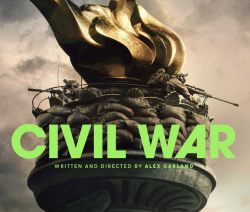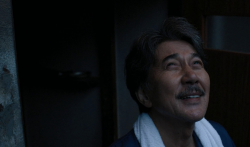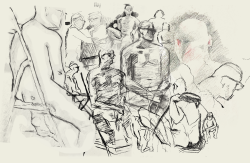Mulholland Drive, David Lynch, 2001
Mulholland Drive isn’t a difficult film. Despite its convoluted plot, unsettling characters, and occasionally intense moments, Mulholland Drive is pretty straightforward: it’s about film itself. Some people will try to tell you it’s about a depressed, failed actress; others might tell you it’s about an eager young woman trying to make it in Hollywood. In reality, they all miss the point. Lynch’s masterwork, coming 25 years (and three bonafide classics) into his career, doesn’t care about trivial things like “narrative.” Mixing the pure surrealism of 1977’s Eraserhead with the love he developed for character studies in the 1990s, Mulholland Drive sees Lynch using surrealism for more than just shock value. The film isn’t loaded with frightening imagery (like 1986’s Blue Velvet, for instance), but it’s still far more unsettling than anything he’s ever done, thanks to just how well he develops his inexplicably disturbing characters. Despite phenomenal performances by Naomi Watts and Laura Harring, conversation on Mulholland Drive always comes back to Lynch himself, and rightfully so—the film is so transparent you can practically hear him shouting cues behind you. Unlike even the finest movies of the decade, this isn’t a story; it’s a film. And a damn good one at that.
—Matthew Collins
No Country for Old Men, Joel and Ethan Coen, 2007
No Country for Old Men stands out for its soundtrack—it barely has one. The Coen brothers, in their most intense thriller, let the sound of silence build more suspense than an army of strings ever could. The film doesn’t really need help creating tension because Javier Bardem’s ruthless assassin, Anton Chigurh, handles that all by himself. Chigurh is one of the decade’s most iconic villains, using coin flips and a cattle stunner to leave a trail of bodies through 1980s Texas on his search for a suitcase full of drug money and the unfortunate man who stumbled upon it. The action is so gripping that the abrupt ending will catch you by surprise, but it’s a fitting end for a film whose twists and turns you never hear coming.
—Tim Shine
Lost in Translation, Sofia Coppola, 2003
The Coppola family’s presence in Hollywood for another generation was assured by Lost in Translation. Written and directed by Sofia Coppola (yes, the one who ruined The Godfather: Part III), the film follows a depressed Bill Murray and sultry Scarlett Johansson through an oddly romantic journey in faraway Tokyo. Lost in Translation carefully explores the emotional connection the two share, never falling into trite Hollywood relationship traps—they bond over the emptiness of their personal lives and the discomfort of being lost in a culture radically different from their own. But it takes a relationship so real to make the last scene—something that would come off as cheesy in the hands of a lesser director—actually mean something.
—George D’Angelo
There Will Be Blood, Paul Thomas Anderson, 2007
Paul Thomas Anderson’s masterpiece is brutal. Brutally cynical. Brutally difficult. Brutally honest. Audiences don’t enjoy the film—it’s not entertaining. Watching There Will Be Blood is physically and emotionally draining, but it’s still a must-buy for any DVD collection because it’s too damn good not to have. Daniel Day-Lewis is downright frightening as Daniel Plainview—a man without friends, without (true) family, without morals. Other actors, including Paul Dano, keep up with him, but make no mistake: There Will Be Blood is Day-Lewis’s film. And if dark, ambitious period pieces aren’t your style, at least you’ll find out the etymology of “I drink your milkshake! I drink it up!”
—Chris Heller
The Lives of Others, Florian Henckel von Donnersmarck, 2006
Germany may be twenty years past the Berlin Wall, but The Lives of Others, the debut feature film of German director and writer Florian Henckel von Donnersmarck, provides a spellbinding look at art culture under a communist regime and the dangers inherent to life in a surveillance state. Set in East Germany in the 1980s, the movie follows a playwright and his live-in girlfriend, a couple under supervision for suspected pro-Western sympathies. In connection with its larger themes, the movie truly shines by creating intense emotional connections with and between characters who are seemingly bent on self-destruction. There is no redemption without tragedy.
—Eric Pilch
Mean Girls, Tina Fey, 2004
Oh, come on; whether you admit it or not, you’ve seen Tina Fey and Amy Poehler’s Mean Girls at least four times. The funniest movie to ever come in a pink DVD box, it’s also the only “girl movie” that your male housemates watch at least as frequently as your female ones. Like any pop culture classic, its lines have worked themselves into our daily life so far we don’t even notice “boo, you whore” as a reference anymore. Beyond the quotability and the pratfalls, though, Mean Girls works because it’s a real story, about real people—exaggerated but nevertheless entirely genuine. For all the movies out there about “being true to yourself,” this is one of the few that really means it.
—Shira Hecht




